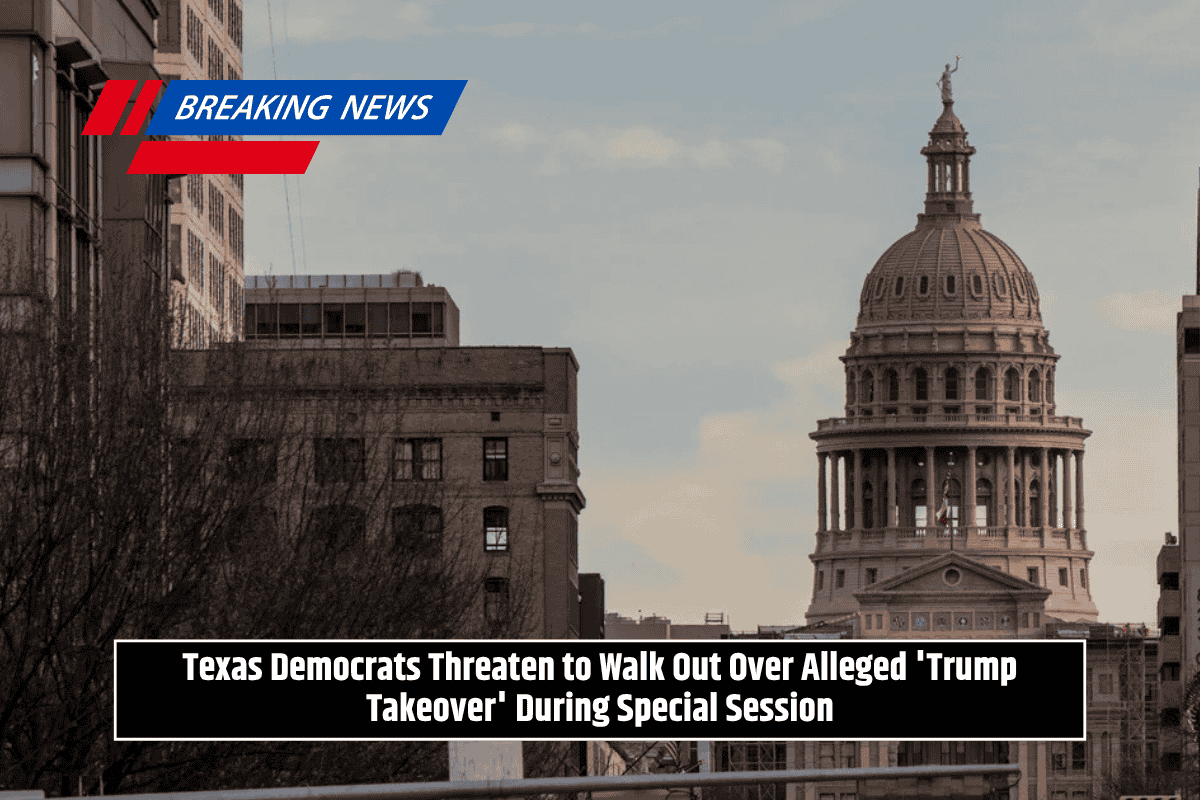Texas lawmakers have officially begun a special session with a challenging agenda ahead. This session could be just the first of several as they tackle a broad range of issues, with 18 items set by Governor Greg Abbott for consideration over the next 30 days.
Focus on Flood Relief and Central Texas Recovery
Rep. Mihaela Plesa emphasized that the top priority should be providing flood relief for Central Texas communities devastated by recent floods.
“We need to get families and communities the care that they need and the recovery dollars,” said Plesa, making it clear that responding to the needs of flood victims should be the main concern.
However, there are concerns within the Democratic party that the session might be used as an opportunity to push through a conservative agenda under the guise of flood relief.
Rep. Gene Wu, the chair of the Texas House Democratic Caucus, voiced his worry, stating that the proposed relief efforts could serve as a distraction to pass other controversial policies.
Tension Over Conservative Agenda and Abortion Restrictions
Governor Abbott’s agenda for the special session also includes issues such as further restricting abortion access, setting limits on women’s restrooms, and redrawing Congressional districts.
Democratic leaders have raised alarms that Abbott is using the flood tragedy to advance his political goals. “Gov. Abbott is using this tragedy, using the deaths of hundreds of Texans, as the doorway to get what he wants politically,” said Wu.
The tension is palpable as Democratic leaders, including U.S. Representative Greg Casas, have stated they are ready to take action to block certain proposals.
Casas mentioned the possibility of filibusters, dragging out hearings, and quorum breaks as tactics to delay or stop the passage of certain laws. “We will need to buy time, and that means keeping everything on the table,” Casas said.
The Role of Democrats in the Special Session
Democratic lawmakers are closely watching the session’s developments. A quorum in both the Senate and House is necessary to conduct business, and Democrats have used the tactic of fleeing the state in previous years (2003 and 2021) to stop legislative progress.
Rep. Wu stated that his party is waiting to see how the Republicans prioritize issues. “We will see what they do. We will see if they have hearings on flooding first,” Wu said, emphasizing the need for flood relief to be addressed promptly.
Redistricting and the GOP’s Push for New Congressional Maps
One of the most politically charged issues on the table is redrawing Texas’ Congressional districts. President Trump has called for new districts to help the Republican party secure more seats, just four years after the current maps were approved.
Rep. Brian Stiller, assigned to the redistricting committee, remained cautious about his role, stating, “We just need to hear the testimony from interested persons and make a determination on what, if anything, needs to be done.”
The question of whether the redistricting will focus on increasing Republican representation or address concerns raised by the Department of Justice over several districts remains uncertain. However, Stiller emphasized that redistricting is a regular part of the political process, even though it usually happens every 10 years.
The special session in Texas is shaping up to be a contentious one, with much at stake for both parties. While flood relief remains a priority for many, there are fears that other conservative goals, such as stricter abortion laws and redistricting, might overshadow the session’s main focus.
As lawmakers continue to navigate these challenges, both parties are preparing for a battle over what will take priority during this critical period.
